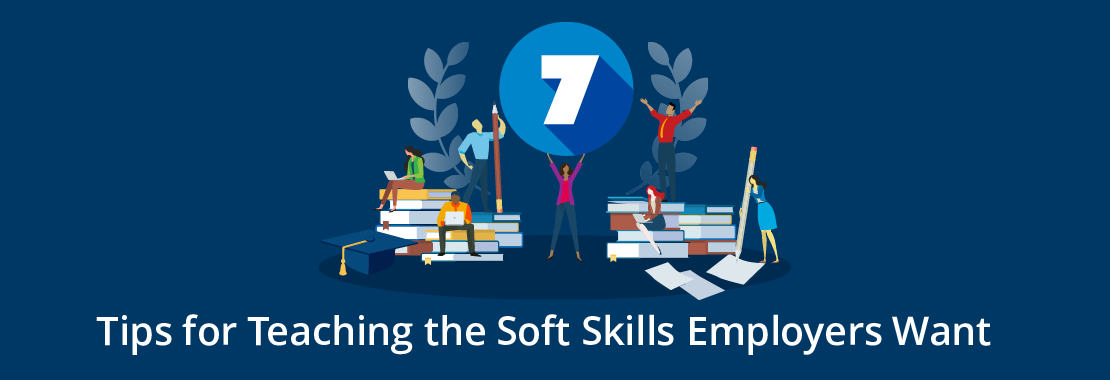Dr. Ashley Hall is an adjunct instructor at Abilene Christian University
It’s no secret that communication skills are necessary for success in the workplace. Whether a person is sharing ideas, listening to feedback from others, composing a professional email or giving a presentation, communication skills are essential. Unfortunately, new graduates sometimes struggle to make the switch from being casual communicators to polished communicators who represent themselves and their companies well.
There are a wide variety of soft skills we as educators can help students develop to set them up for success in the workplace. Here are three ideas to help students build their professional communication skills.
1. Incorporate Team Assignments
While some students may dread team assignments, they can teach valuable skills that go beyond the project’s focus. However, don’t just hope that students think through their experience working with a team. Instead, consider ways to help them process the soft skills they built through the team assignment.
For example, you could lead a class discussion or develop a discussion board prompt that has students reflect on their experiences. Ask probing questions to help them really think through their experience and what they would do differently going forward. Another option would be to assign a reflective memo so that even quieter students have an opportunity to share their experiences.
Communication is just one skill students can gain through team assignments. Throughout the process, students will have to reach out to one another, brainstorm ideas, provide feedback, resolve conflict, come to an agreement, implement a plan, keep their teammates up to date on their progress and ultimately produce the work they were assigned. Communication skills are woven all throughout the process.
2. Maintain a Standard of Professional Communication
To properly prepare your students for the workplace, be sure to implement a standard of professional communication in your class as well. This might involve teaching students what professional communication looks like, especially in written form. For example, consider outlining what your correct title is and how students should address you, both face-to-face and via electronic communication.
Texting has changed the way we view communication, so you may need to remind students that they should use complete sentences and capitalize appropriately in professional emails. While this may seem like nitpicking, it helps students build professional communication skills that are essential in the workplace.
3. Incorporate Higher-Level Learning Activities
By moving beyond the base levels of Bloom’s Taxonomy and asking students to analyze, evaluate and create, they will not only gain a deeper understanding of the course material, but they will also build communication skills. Learning activities that require a student to analyze information and share recommendations, either verbally or in a written format, will challenge students to communicate effectively when sharing their ideas.
This provides an opportunity for the instructor to give actionable feedback and coaching not only on the course content but also on how the information was articulated. Building an argument and defending your position are important workplace communication skills that students can develop using higher-level learning activities in classes.
Conclusion
Developing communication skills takes time and effort. However, most importantly, it takes practice. Like any skill, you learn by doing it, not just reading about it, or hearing about it. That is why it’s important for instructors to build opportunities into their classes for students to practice communicating ideas, engaging in active listening and delivering professional communication both in written and verbal formats.
To learn how to get students ready for careers by fostering this top soft skill for employers, watch the recording of our Empowered Educator session, “Strengthening Skills for Career-Ready Students.”




